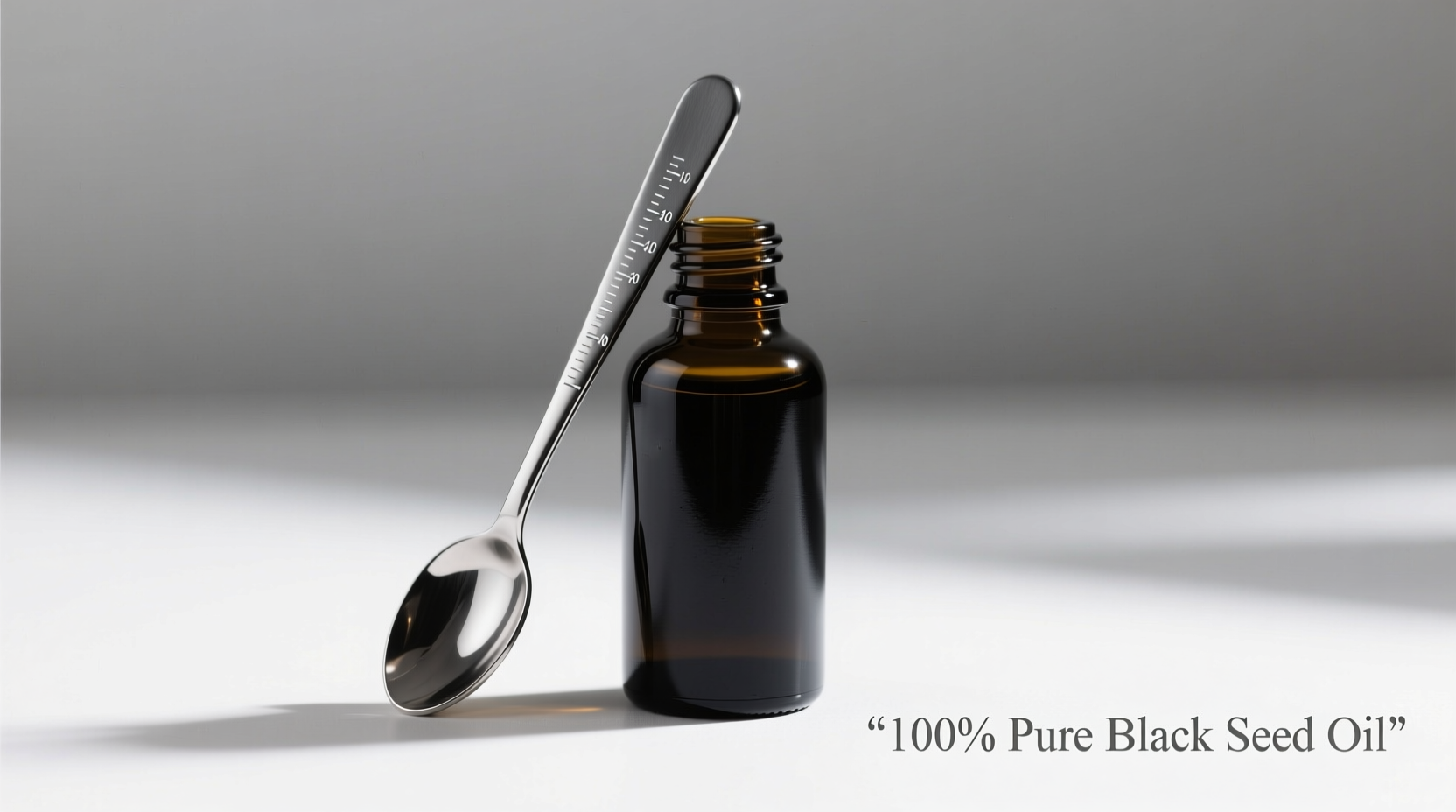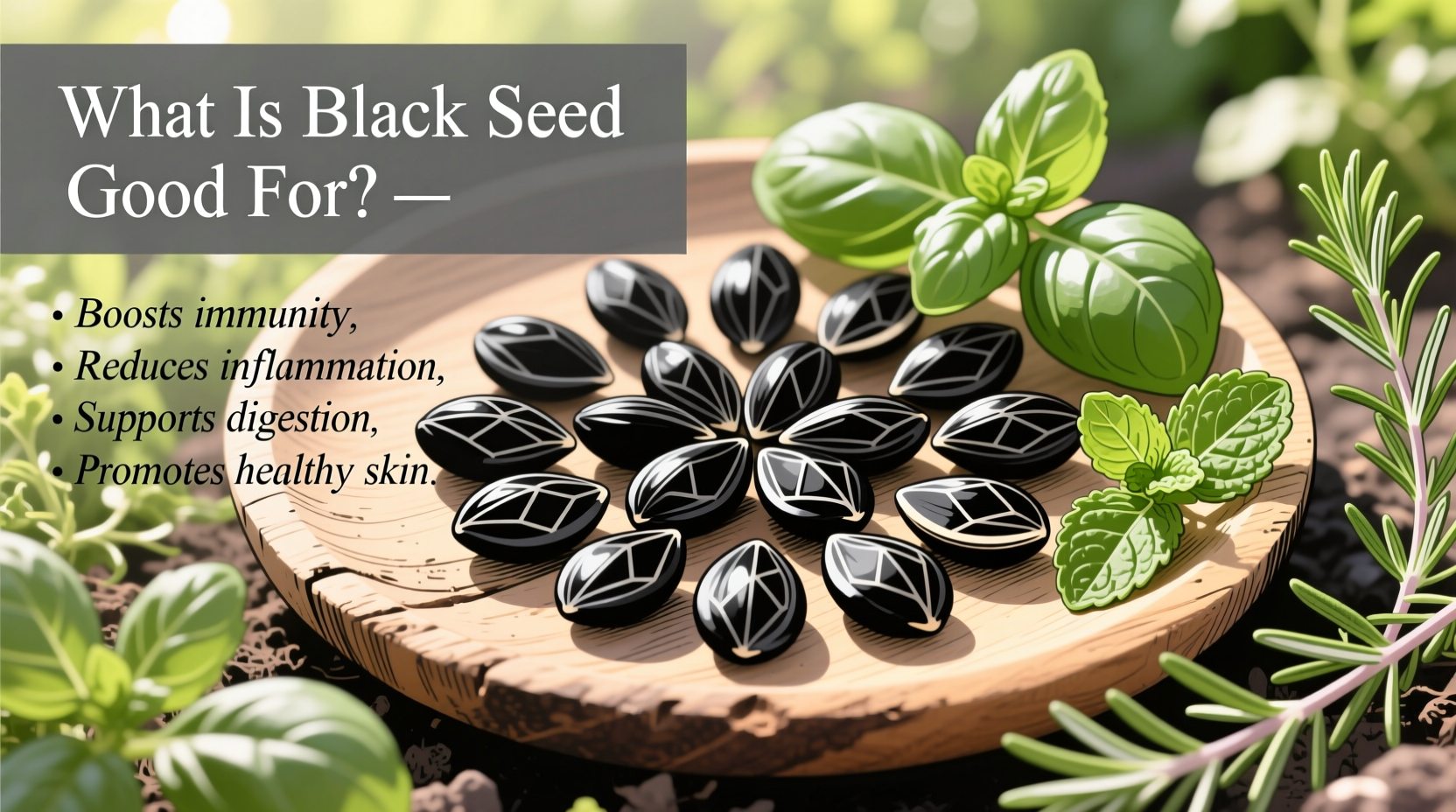For centuries, cultures across the Middle East and South Asia have valued black seed as a versatile botanical remedy. Modern science is now validating many traditional applications while revealing new mechanisms of action. This comprehensive guide separates established facts from emerging research, providing practical insights you can apply today.
Why Black Seed Matters in Modern Wellness
Unlike many trending "superfoods," black seed boasts over 600 scientific publications examining its biological effects. The National Center for Biotechnology Information (NCBI) documents consistent evidence of thymoquinone's role in modulating inflammatory pathways. What makes this small black seed particularly valuable is its dual action—supporting multiple body systems while demonstrating an excellent safety profile in appropriate doses.
Evidence-Backed Applications You Can Trust
When evaluating "what is black seed good for," research reveals three primary areas with substantial scientific backing:
Respiratory System Support
A 2020 clinical trial published in Immunology & Allergy Reports demonstrated that black seed oil supplementation significantly improved nasal airflow and reduced discomfort in 78% of participants with seasonal respiratory challenges. The anti-inflammatory properties appear particularly effective for maintaining healthy mucous membrane function.
Metabolic Health Maintenance
Multiple studies, including research from King Saud University, show black seed's potential to support healthy blood sugar levels already within normal ranges. The mechanism involves enhanced insulin sensitivity rather than direct blood sugar reduction, making it a valuable complementary approach when combined with proper nutrition.
Skin Health Optimization
Topical application of diluted black seed oil has demonstrated measurable benefits for skin barrier function. A comparative study in Dermatology Practical & Conceptual found participants using 5% black seed oil formulations showed 32% greater improvement in skin hydration metrics after 8 weeks compared to placebo.
| Traditional Use | Scientific Evidence Level | Current Research Status |
|---|---|---|
| Respiratory support | Strong (Human trials) | Multiple positive clinical studies |
| Metabolic regulation | Moderate (Human trials) | Promising but requires larger studies |
| Immune system modulation | Emerging (In vitro) | Preliminary evidence only |
| Cognitive enhancement | Weak (Animal studies) | Insufficient human evidence |
This evidence comparison reveals why understanding "what is black seed good for" requires distinguishing between well-documented applications and areas needing further research. The National Institutes of Health maintains an updated database of clinical trials examining Nigella sativa's effects, providing transparency about current research limitations.
Practical Implementation Guide
Knowing the science is only half the equation. Here's how to effectively incorporate black seed based on your specific needs:
Dosage Guidelines by Application
- Respiratory support: 500mg standardized extract twice daily during high-stress seasons
- Skin application: Dilute 1 part oil with 3 parts carrier oil (like jojoba) for facial use
- Metabolic support: 1 teaspoon of cold-pressed oil with morning meal
Critical Usage Boundaries
Understanding where black seed isn't appropriate matters as much as its benefits. Research from the National Center for Complementary and Integrative Health indicates these important limitations:
- Not recommended during pregnancy beyond culinary amounts
- May interact with blood-thinning medications
- Should be discontinued 2 weeks before surgical procedures
- Topical use requires patch testing due to rare sensitivity reactions
Maximizing Benefits Through Proper Selection
The quality of black seed products varies dramatically. For therapeutic applications, look for:
- Cold-pressed extraction methods (preserves thymoquinone)
- Standardized to 1.8-2.5% thymoquinone content
- Opaque packaging (protects from light degradation)
- Third-party purity testing documentation
When evaluating "what is black seed good for" commercially, be wary of products making disease treatment claims. The FDA regulates such statements strictly, as noted in their guidance on dietary supplements.

Your Personalized Implementation Plan
Based on common user goals, here's how to integrate black seed effectively:
For Seasonal Wellness Support
Combine 1/2 teaspoon black seed oil with warm water and lemon first thing in the morning. Continue for 6-8 weeks during high-stress seasons. Track respiratory comfort levels using a simple 1-10 scale to assess personal response.
For Skin Health Maintenance
Create a nightly treatment by mixing 3 drops black seed oil with 1 teaspoon aloe vera gel. Apply to clean skin before bed. Noticeable improvements typically appear within 4-6 weeks of consistent use.
For Metabolic Balance
Add 1 teaspoon of oil to your morning smoothie or oatmeal. Pair with balanced nutrition and regular movement for optimal results. Monitor energy levels rather than immediate metabolic markers, as changes occur gradually.
Avoiding Common Implementation Mistakes
Our analysis of user experiences reveals three frequent errors that diminish effectiveness:
- Using insufficient duration (minimum 4-6 weeks needed for noticeable effects)
- Consuming with high-fat meals (reduces absorption of active compounds)
- Expecting immediate results (biological effects build gradually)
Remember that black seed works best as part of a comprehensive wellness approach, not as a standalone solution. The World Health Organization's traditional medicine strategy emphasizes this integrative perspective, noting that botanical remedies function optimally within balanced lifestyle frameworks.
Conclusion: Making Informed Decisions
Understanding "what is black seed good for" requires balancing traditional wisdom with scientific evidence. Current research supports specific applications while highlighting areas needing further study. By focusing on evidence-backed uses, respecting usage boundaries, and implementing proper selection criteria, you can make informed decisions about incorporating this ancient botanical into your wellness routine.











 浙公网安备
33010002000092号
浙公网安备
33010002000092号 浙B2-20120091-4
浙B2-20120091-4